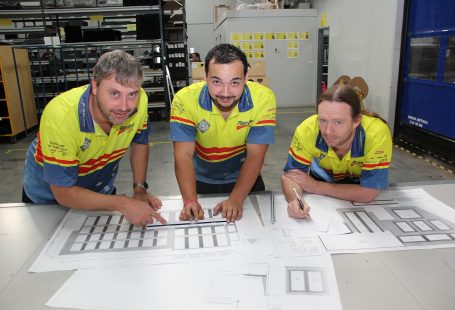David Cameron was accused last night of creating confusion throughout the state school system after pledging to open hundreds of new free schools within the next few years.
One senior academic said the Prime Minister was creating a “liquorice allsorts” system with a bewildering array of different types of schools. Instead, argued Professor Alan Smithers, a senior adviser to the Commons Education Select Committee, ministers should concentrate on improving standards in all state schools.
“We’ve got secondary schools with specialist labels that don’t specialise, we’ve got all kinds of faith schools and we’ve got three types of academies, ” he added. “Surely the Government’s duty is to try to provide a decent standard of education for every child in the country. This is a ‘liquorice allsorts’ kind of system whereas all children should have an equal chance of a decent education. I would like more effort put into improving the education of those children whose parents aren’t experts on choice.”
Mr Cameron, meanwhile, has asked his old school, Eton College, if it would be prepared to set up a school in the state sector. He met representatives of leading independent schools in Downing Street on Thursday, and told them he wanted all private schools to consider how they could help drive up standards in the state sector.
Eton’s headmaster, Tony Little, said after the meeting that he was looking at “several possible routes” for helping the state sector.
In a speech yesterday at the opening of one of the 24 free schools starting this term, Mr Cameron said he believed hundreds of free schools could be opened during the next few years. He said he wanted to bring “rigour” back into the classroom and restore order and respect in schools. This would be done by focusing on standards, discipline and changing the structure of the school system.
He said the free school policy – whereby parents, teachers, faith groups and education charities are given the funding to set up their own schools – had “really taken off”.
Mr Cameron has said he wants to see a touch of “elitism” and competition return to the classroom in place of the “all must have prizes” approach to education.
The Government is encouraging as many schools as possible to become academies – opting out of local authority control and running themselves in the same way as independent schools. There are now 1, 300 academies in England – about a third of the state secondary school system.
However, Mr Cameron came under fire from academics and teachers’ leaders last night who claimed he was “dismantling” the current education system. Brian Lightman, general secretary of the Association of School and College Leaders, criticised the “relentless changes to our school system which continue to astonish observers abroad”.
“What parents really want is the opportunity to send their child to an excellent state school wherever they live. I do not believe we will achieve this by continuing to experiment with new structures and introducing a competitive market where some schools are set up to fail.” Christine Blower, general secretary of the National Union of Teachers, added: “The union simply does not agree that the fragmentation of our education system is the right answer. The free schools and academy programme are a divisive and unnecessary experiment with the education system which will certainly ensure more losers than winners.”
However, Margaret Morrissey, spokeswoman for the parents’ pressure group Parents Outloud, welcomed Mr Cameron’s call for a return to more competition between pupils. “I don’t think a bit of elitism would necessarily be a bad thing, ” she said. “Schools need to get the best out of their pupils and this is a fantastic way. There has been too much political correctness in the past.”
But she counselled against assuming that all children at academies and free schools would go on to higher education. “There are other routes out of education such as apprenticeships and technical skills and they should recognise that, ” she said.
In his speech, Mr Cameron also warned of a crackdown on “coasting” schools – those that were not actually failing but not improving or getting the standards they should be with more privileged intakes.
In names and numbers
Pay attention at the back…The choices facing parents
3, 446: There are 3, 446 state secondary schools in England. The vast majority (about 2, 950) are comprehensive in name. There are still 164 selective grammar schools in the country and the rest are either secondary modern schools or “high” schools (effectively secondary modern schools that choose to use a different name to describe themselves).
1, 300: Within that 3, 446 figure, there are 1, 300 academies. The difference between these and those that remain maintained by the local authority is that they have the same freedoms as independent schools to set their own curriculum, hire non-qualified teachers and run their own affairs. There are, to complicate it further, two types of academies. There are those set up under the previous Labour government which have sponsors (education charities, private providers, independent schools and universities). There are 319 sponsored academies. Under the Coalition, existing state schools – firstly those described as “outstanding” by Ofsted – were allowed to transfer to academy status. There are 981 transferred academies.
10: A further complication is that virtually every state secondary school is a specialist school, specialising in one area or another of the curriculum. (There are at least 10 types of specialist schools including languages, science, maths, arts, sports, humanities and even rural studies.)
16, 884: There are also 16, 884 primary schools in England. Only a handful have decided to convert to academy status.
Read more:
All the current work, which is often performed by a team of employees in an ordinary institution, is supported by oficina virtual, with minimal costs and greater efficiency. Using this service, the entrepreneur gets access to the use of convenient and inexpensive services. The main component of the virtual office is postal and secretarial services. To entrust the work with the correspondence of the organization can only be a responsible employee who must have literacy (this is necessary in the preparation of documents), communication skills, and the ability to make the right decisions in difficult situations.










